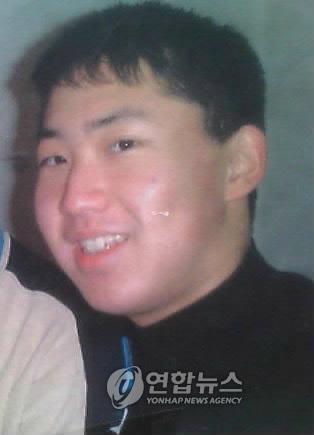Party Conference a Coronation?
The 3rd Party Conference (which may begin on 6 September) is one event that will facilitate the leadership system which will eventually replace Kim Jong Il at the power center. It is not clear to what offices Kim Jong Un (Kim Ch’ong-u’n; Kim Jong Eun) will be elected in September. It is also not clear what kind of power Jong Un currently has, or will have as a result of the Party Conference. In a Korea Herald interview with Kim So-hyun, Cheong Seong-chang of the Sejong Institute offers some analysis about the upcoming Party Conference, as well as how he perceives the current power dynamic in Pyongyang. While one may have a quibble or two with Cheong’s theory, his remarks provide a good survey of KJI’s current brain trust.
The young heir began running the country’s secret police agency, which oversees and therefore controls the country’s power elite, according to Cheong Seong-chang, senior fellow of the inter-Korean relations studies program at Sejong Institute.
“As the successor, Jong-un was given extralegal authority as the country’s No. 2 in command of the Workers’ Party and the military last year,” Cheong said.
“From the summer of 2009, all official reports made to Kim Jong-il went through Jong-un.”
Cheong predicted that the Workers’ Party representatives will appoint to the party’s key positions Jong-un and others who will help him tighten his grip on the country’s military and the whole society.
The North said it will convene a meeting of party representatives to elect members of the party’s “supreme leadership,” which means the party’s Central Committee.
“One of the posts Jong-un could assume is the organizational secretary of the party’s Central Committee, who wields the greatest power on the committee,” Cheong said.
As the next in throne, the young man consults a number of high-profile officials or minions of his father that safeguard the Kim family’s dictatorship.
Jong-un’s uncle Jang Song-thaek tutors him on the country’s finances and relations with China while Kim Young-choon is in charge of the military. Jang and Kim Young-choon are two of the four vice chairmen of the National Defense Commission, the country’s de facto supreme guiding organ.
Jong-un consults O Kuk-ryol, another NDC vice chairman, on operations against South Korea, Joo Kyu-chang on the North’s defense industry, Woo Dong-cheuk on international counter-espionage operations, Joo Sang-song on public security, Cho Myong-rok and Kim Jong-gak on military politics, and Lee Yong-moo on the private sector. All of them are members of the NDC, “elected” to their posts in April 2009.
Kang Sok-ju handles the country’s relations with the U.S,. although he is not on the 12-person NDC, the chairman of which is Kim Jong-il.
Cheong portended that most of the NDC officials will be nominated to the party’s Central Committee early next month.
“Jong-un could take on as a member of Central Military Committee as he is already referred to as ‘the young general,’ or a standing member of the Politburo,” Cheong said.
“Then the joint leadership of Kim Jong-il and Jong-un, in which the father has stronger power than his son, will quickly shift to vice versa where the heir wields greater influence on all state affairs with the exception of diplomacy and policies on South Korea.”
The patrons of the young general have taken paths similar to that of communist figures such as Oh Jin-woo and Choi Kwang who supported Kim Jong-il when he was preparing to succeed his father Kim Il-sung.
Kim Jong-il’s brother-in-law Jang Song-thaek serves as the administrations bureau chief of the Workers’ Party and was promoted to vice chairman of the NDC in June.
Jang manages the finances of the NDC, the Cabinet and the security organs controlled by the NDC such as the secret police, the military intelligence unit, the prosecution and the court. He is also known to be responsible for North Korea’s relations with China.
Often referred to as the “bridge” between Kim Jong-il and Jong-un, Jang is predicted to act as the regent of his nephew.
The North Korean military, which was previously controlled by Kim Jong-il’s direct orders, came under defense minister Kim Young-choon’s command in April 2009.
Kim Young-choon controls the nation’s troops for conventional warfare while Kim Jong-il supervises the strategic troops that deal with missiles and nuclear weapons.
Chief of the Workers’ Party’s operations bureau O Kuk-ryol serves as the Kim regime’s strategist who holds sway over the top special forces and the specially trained agents that operate overseas.
First deputy chief of the politburo Kim Jong-gak was appointed as an NDC member in April last year and assists Jong-un from a close range. He reportedly directed the execution of Park Nam-ki, former chief of the party’s financial planning, who allegedly planned to integrate moneymaking companies run by the military into the Workers’ Party. Park was blamed for the failure of the country’s currency reform last year.
Does the Morningstar General’s attention extend to assisting disaster response efforts in North Pyongan? In a 2 August (Monday) KCBS report on flood relief efforts, the KCBS’ reporter interviewed, “Comrade Kim Chong-un, an official of the North Pyongan Provincial People’s Committee,” who then proceeded to detail flood damage to the local area.

A promotional poster for the 3rd Party Conference released in July 2010:"The conference of Party representatives: With a high degree of political enthusiasm and admirable labor achievements!" (Photo: KCNA)
